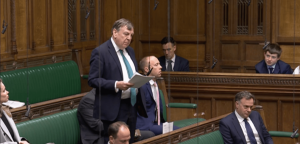The measures in the Police, Crime, Sentencing and Courts Bill, that pertain to protesting powers, in no way undermine the public’s right to carry out protests. The Government knows that protesting is a cornerstone of our democracy. These measures merely seek to protect people from highly-disruptive protests that seek to cause havoc in the daily lives of the public.
The National Police Chief’s Council have expressed concerns that existing public order legislation is outdated and is no longer appropriate to respond to highly disruptive protests that have recently been on the rise. These protests have disrupted people’s daily lives and been a drain on public funds – for example halting public transport networks, blocking the printing press and blocking ambulances from reaching hospitals.
For example, during Extinction Rebellion’s protests of April and October 2019, some of London’s busiest areas were brought to a standstill for several days. This had a disproportionate impact on commuters and small businesses, for example, with the policing operation for the two extended protests costing £37m – more than twice the annual budget of London’s violent crime taskforce. Additionally, during some of the Black Lives Matter protests in summer 2020, 172 Police officers were assaulted by a violent minority of the protesters.
Through these new powers, the Home Office is seeking to improve the police’s ability to manage such protests and allow them to balance the rights of protesters against the rights of those going about their daily lives.


